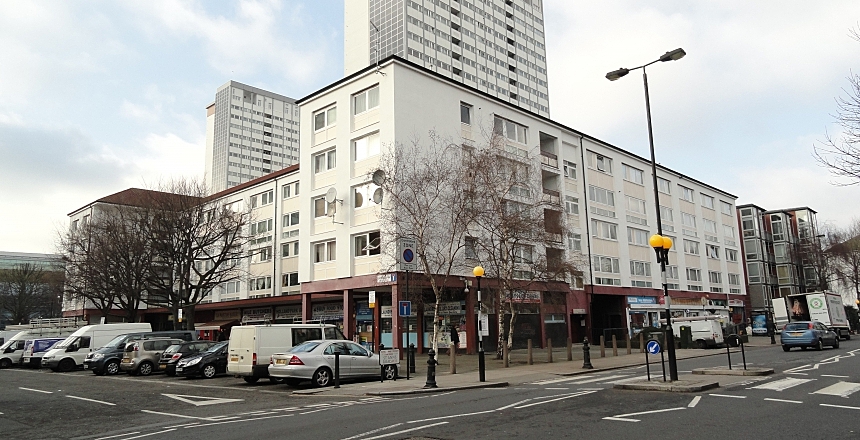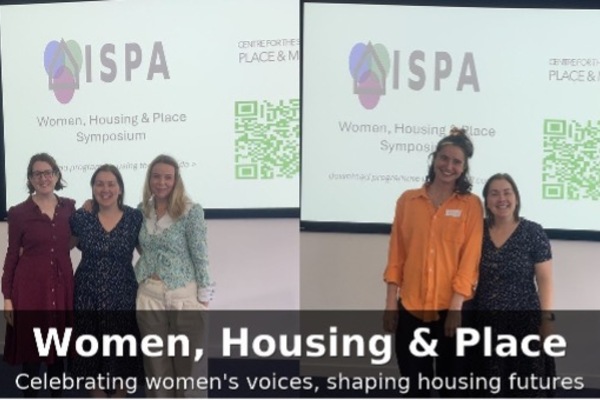
At the end of May 2017 the Property and Social Justice Network at the University of Sheffield organised a public event as part of the 2017 Sheffield Festival of Debate. Here, Rowland Atkinson (University of Sheffield) explains the motivation for holding the event, and summarises the key themes that emerged.
In 2014 the annual housing survey showed that more people were now renting privately than were social renters. One way of thinking about this transition is that more people are giving-up large proportions of their income to landlords looking to improve their pension prospects. Those with property, assets and investments make more, while a generation of perpetual renters end-up denting their own financial futures by paying significant proportions of their income on rent. What used to be referred to as council housing, or as Michael Harloe once put it in his book, The People’s Home, is however back on the agenda. Political parties (with the exception of those currently in power) are discussing financing options and the need for more and better homes backed by the state as a guarantor and low-cost provider. Possibilities for innovation in construction techniques and sustainable practices seem possible. Perhaps such prospects are thinkable because things have become so very bad for so many people. We can talk about levels of overcrowding, a lack of affordable homes, bad landlords, housing benefit scams but we should also consider the immense levels of social distress and anxiety of millions who are unable to navigate a complex, costly and unfair housing system.
This context was the backdrop for a debate on housing hosted by the Property and Social Justice Network at the University of Sheffield this year. The event was designed to bring attention to the question of how to generate a national movement around the housing question. What is that question? In many ways asking what we need from our housing system is difficult, the view is blocked and muddied by political and corporate interests and the needs of many people are ignored or held back by (depending on one’s view) the inefficiencies of state planning processes or the desire of the construction sector to build poor quality houses sufficiently slowly that profit margins are propped-up. The shock of Brexit (whether or not it happens) has slowed even the super-prime markets of London while debates about the need for public housing have been given renewed strength by the continued faultlines and vulnerabilities of the urban poor, highlighted in sharp relief by the terrible events at Grenfell. On one level the answer is simple, as a society we need the state to act in, and broker the interests of, all to ensure that a right to good housing is honoured and that people are not disadvantaged by where they live, or by the meagre rewards of many jobs today.
Gentrification has become a national concern, from Cornish fishing villages to commuter belts, from the villages of East Anglia to the Welsh Valleys.
Now the ‘radical’ possibility of concerted state action appears to have entered the psychology of Westminster policy thinking. One sign of the scale of underlying change and the role of housing as a key issue could be seen in the role of anxieties about housing and the role of super-rich investors in the most enduring Conservative heartland of Kensington and Chelsea, which was lost in this year’s election by just 20 votes in favour of Labour. Gentrification has become a national concern, from Cornish fishing villages to commuter belts, from the villages of East Anglia to the Welsh Valleys. The reasons for this problems seem more clearly identifiable, but it has taken us some time to get there – developers making record profits (until very recently) via huge government subsidies to even affluent buyers without delivering sufficient or high enough quality dwellings, the massive hold of international capital (by the wealthy, pension companies and investment trusts) and the continued intergenerational injustice witnessed in the rise of private landlordism that has expanded at the cost of owner occupied housing. Critically, the extent of this crisis means that the interests and anxieties of the middle-classes are increasingly aligned with those at the bottom, as they see their own children locked-out of the kinds of housing careers that they themselves enjoyed.
Household poverty, blocked opportunities, overcrowding and family stress are features of the housing system we have developed in the UK. A still-growing private rented sector, with high rents and poor conditions, has become the typical experience of many young households. The demolition of public housing in cities like London and a lack of imagination around resolving economic and housing conditions in the North of England also tell us that something needs to be done. Within these debates there has been a new-found confidence in the idea that public house-building, as a quality sector overseen by local authorities accountable to citizens, offers a viable and potentially exciting way forward to address the housing crisis. Here are some of the key points that were made in our discussion and ideas for a way forward on an issue that involves the problems of many millions:
How to get a popular movement going – those who attended identified a need for a national campaign to demand decent, secure, truly affordable and safe homes for all. Restoring council housing to the policy mainstream is a necessary, but not sufficient, step for achieving this. Such a movement would recognise that the only people who have an interest in maintaining the housing status quo are those who profit from it. Housing policymaking needs to find a way of including the ‘demand-side’ voice.
Broadening the struggle – One of the perennial challenges for housing movements is that they are extremely local. Movements are able to mobilise in response to issues in one building, one estate, one neighbourhood, or one part of the housing sector. Housing movements will be more successful if they can create a unified movement that connects the struggles of public tenants, private tenants, financialised homeowners, migrants—all of those facing exclusion, stigma, and powerlessness in housing. Of course local struggles have important differences, but the more that a common language of housing justice can be found, the stronger housing movements will be.
Recognising the role of citizens in shaping their own housing choices – Citizen groups already invest their time, money and reputations in creating community based housing solutions that neither the state nor the market is offering. The capacity of the state to devise policy that suits everyone is limited. The UK government needs to move beyond the ‘fairness queue management’ function that it has had to adopt, simply by virtue of chronic undersupply of all forms of housing, since the late 197Os. An expanded stock of public housing would allow a greater diversity of tenants and for such homes to address the housing problems of those who also face severe housing needs. The citizen and the state can work together to achieve outcomes that neither could on their own.
Contest Housing Ideology – One of the reasons the housing problem persists is the vast accumulation of misrepresentations and distortions advanced regarding housing problems. These include received wisdom about the glories of homeownership, the failure of public housing, the notion that gentrification helps everyone, and the idea that housing problems are caused by government regulation. These claims are not only false—they actively contribute to the current crisis by hiding the role of inequality, exploitation, and power in residential politics. We need more critical knowledge about housing that goes beyond these superficial and often self-interested positions.
What to do for public housing – As well as challenging the ideological onslaught against public housing, we must change the arbitrary and unpredictable financial rules that constrain local authority capacity to deliver an effective means of addressing the problem. This includes relaxing borrowing restrictions, removing historic debt, releasing public land for public housing and freeing-up Right-to-Buy receipts. For all these reasons and more, the Housing and Planning Act 2016 must be repealed.
Challenging property investment – Investing in public housing will re-balance the housing market in a way that dis-incentivises speculative property investment while de-fusing market volatility and making homes more affordable for all. We also need to demand an end to the massive financial incentives for property investment from public funds, as the many billions allocated to Help to Buy which has only inflated property prices and been used by higher income owners.
Attacking private rental sector returns – We need to restore a system of rent control akin to the Fair Rent model (which applies only to tenants who entered into agreements with landlords before 1988), linked to the abolition of Assured Shorthold Tenancies to create more security of tenure for private tenants and to help the more effective enforcement of repair, fitness and safety standards.
Housing lies at the leading edge of debates about inequality today. What was clear from our discussions is that there are numerous ideas about how to move forward in a way that is fairer to all and which might do less to reproduce such inequalities. Renewed interest in public housing as a means of addressing the crisis in housing conditions nationally appears set to see continued discussion and, hopefully, new innovation and public investment.
Rowland Atkinson, University of Sheffield
Jonny Butcher, ACORN Sheffield
Ross Cathcart, Greater Manchester Housing Action
Desiree Fields, University of Sheffield
Stephen Hill, advocate of citizen-led housing
David Madden, London School of Economics
Glyn Robbins, Defend Council Housing
November 2017
This event was supported by the Housing Studies Association event sponsorship programme. The next deadline for applications is on 15th December 2017. For more information, see here.






